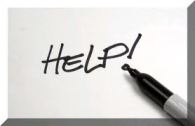I am humbled by my friend, a fellow blogger, Wendy who writes over at
Picnic With Ants for nominating me for this award. I am even a little embarrassed as I have not posted anything here for, let's see, exactly two months! Bad blogger! Bad! No, really, this is good news as I have just been too busy to sit down and write. As someone with a chronic, and sometimes debilitating, disease, being too busy to do something is a very good sign.
So to honor Wendy's kind mention of my desire to lift up others who suffer from Meniere's disease, or any other chronic condition for that matter, through my blog, I have set aside some time to post 7 things you may not know about me and 5 deserving (IMHO) bloggers.
Seven Things You Probably Don't Know About Me:
1. I was born in Los Angeles, but grew up in Northern Idaho. As a young adult, I returned to Southern California and met my husband shortly thereafter. We have since lived in every county in So Cal from Santa Barbara on down to the Mexican Border, with a year each in San Jose and Monterey thrown in. I've lost track, but I think we have moved upwards of 20 times since meeting. And, no, we are not in the military.
2. I know a Nobel Prize winner. My husband worked with
Kary Mullis, the man who developed the technique for DNA fingerprinting, at a small start-up bio tech company about 15 hears ago. I believe one of the first big cases in which this technique was used was the OJ Simpson trial. Very interesting guy! Kary, not OJ.
3. Even though I have lived within an hour's drive of either the Canadian or Mexican borders my entire life, I have never left the country.
4. Of my three children, the two youngest are twins. No, they don't run in my family, I didn't take fertility drugs, and they are not identical - one is a boy and the other is a girl. Yes, I have my hands full. No, I am not brave. And, yes, I feel like I won the lottery.
5. As a dietitian, I specialize in home nutrition support. In other words, I work with people who for one reason or another cannot swallow or digest food the normal way, so must be on home tube- or I.V. feedings. I love my job and about the only food advice I give to my patients is, when possible, to eat MORE fat and MORE calories. I am not someone you want to ask for weight loss advice!
6. I got my driver's license when I was 14-years old. That was the law in Idaho back in the day. A scary thought looking back on it.
7. I am half Norwegian, a quarter Italian, an eighth Irish, and an eighth Cherokee. I have very distinct physical and temperamental traits from each of these ethnic and racial backgrounds.
Five Deserving Bloggers:
I'm afraid I don't follow too many blogs. I've checked out a few other Meniere's-related blogs. Some, in my opinion, share unreliable and confusing information, but most just depress me and some downright frighten me. I love Wendy's blog, though, as she doesn't whine and complain, at least not nearly as much as she's entitled to. Rather, she is quick to find something positive in everything. Despite all that Wendy goes through, she remains sharp as a tack and the artwork she shares is inspiring. Anyway, here are a few blogs I like to read and why:
1. I enjoy reading Nicki's perspective at
Fleetly Dreaming. Nicki and I have a lot in common, but she has muddled through Meniere's much longer than I and has managed to have children, work (until relatively recently), and take life one day at a time, living it with grace and fortitude.
2. For similar reasons, I like to read
Faith, Hope, and a Fighting Spirit. Deb also has unilateral Meniere's and manages to teach, as well as coach gymnastics - of all things! I can't imagine being in a gym full of noise, watching people do flips and twirls. Sometimes when I think I should just throw in the towel and file for disability, I think of Deb and think I can handle my quiet office job a little longer. I especially appreciate her spirituality and the strength she seems to draw from it.
Now for some non-illness blogs I really enjoy reading:
3.
Tiny Buddha. While I am a Christian, I find a lot of practical wisdom in Buddhism and relate very much to the notion of being mindful of the present. After all, that's all there ever really is. When I remember that, I find tremendous peace in my circumstances. One of my favorite sayings which happens to be from Buddhism is, "Suffering is the result of wanting things to be different than they are." In my mind, there are no truer words.
4. I have to be transparent here: Jennifer is a close, dear friend of mine. Her husband and mine have been the best of friends since high school. Jennifer is one of the most creative writers I know. Not that I know many. None really. But her writing style and subject matter never cease to entertain me. Jennifer has published a series of children's books, tweens really, about a
London squirrel in 18th century Williamsburg. If you want to read something funny, witty, thought-provoking, and often off-the-wall, check Jen's blog out at
Of Course, What Do I Know?
5. As someone who works in healthcare, as well as a person with a chronic, idiopathic, progressive condition, I find reading about healthcare from the perspective of the doctors very interesting. That's why I like to read
KevinMD. The blogs are written by many different doctors and other healthcare providers and I find their honest, often fallible, admissions to be a reminder that they don't know all the answers. They are people with doubts, opinions, insights, and questions about medicine and human nature just like the rest of us. While I've seen many good points made here, I like that it reminds me that ultimately I am the one who is responsible for understanding my condition and how to treat it.
So, that's all for now. I am hoping to post a little more regularly here in the coming year, simply to share the little things that, when we are feeling well, we take for granted - but shouldn't. Though, realistically, there will probably be some bad days thrown in as that is what Meniere's disease likes to do to us: give us just enough freedom to regain some semblance of normalcy, then strip it away from us like a super-sticky Band-Aid being ripped mercilessly from a hairy piece of skin. Gotta love it.



